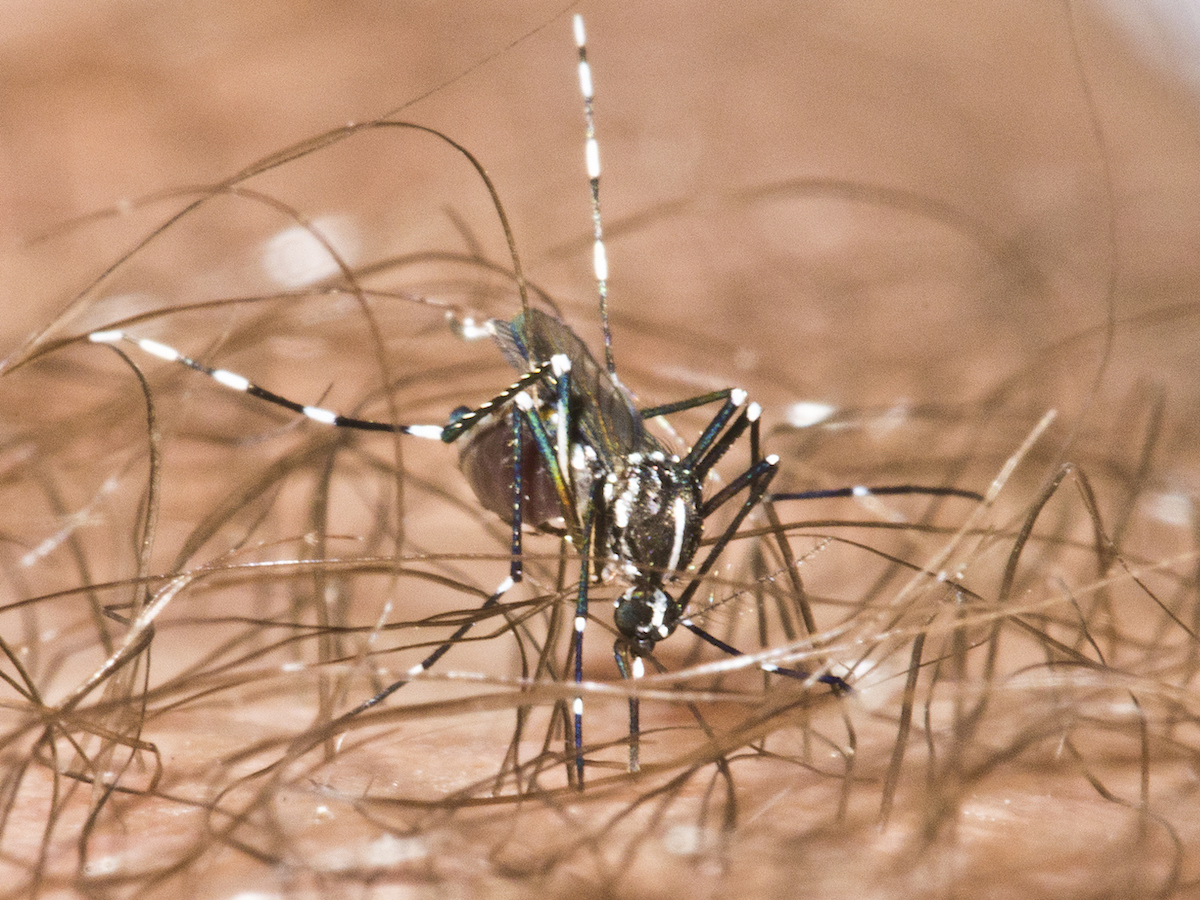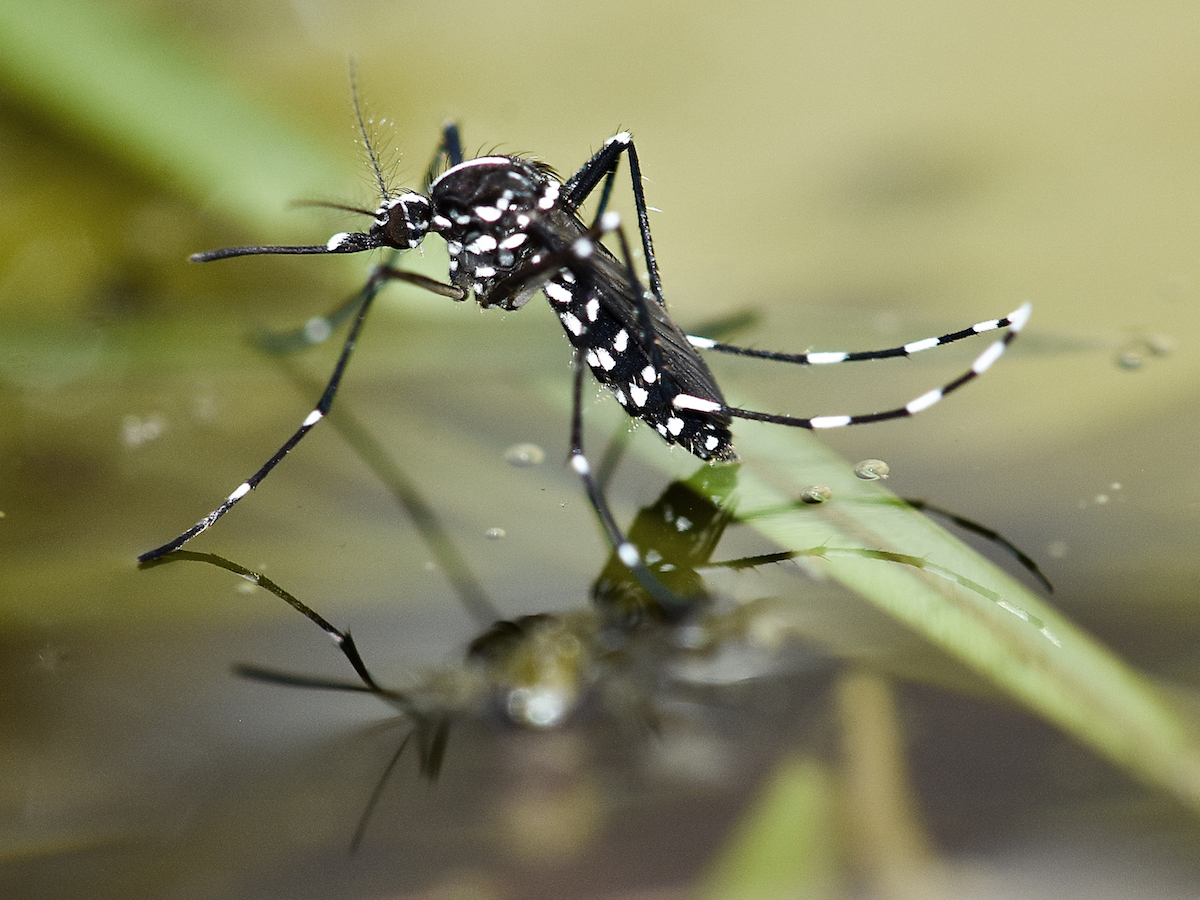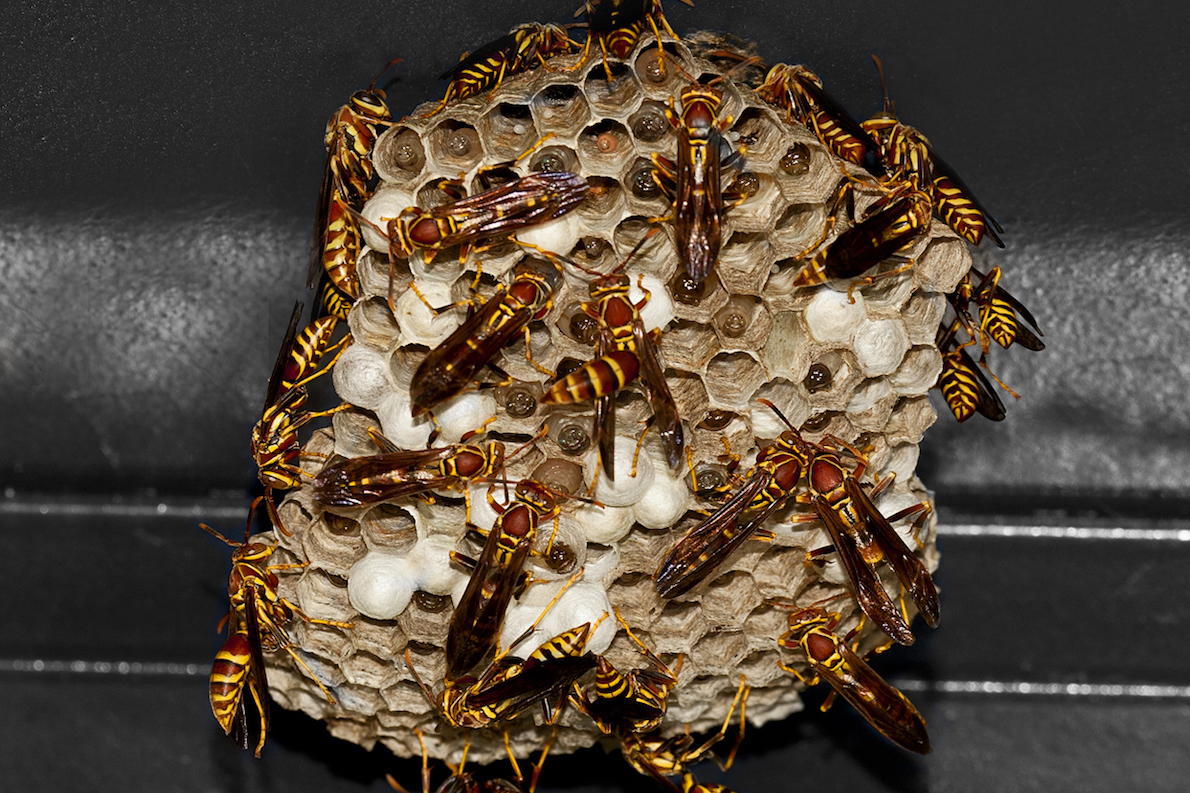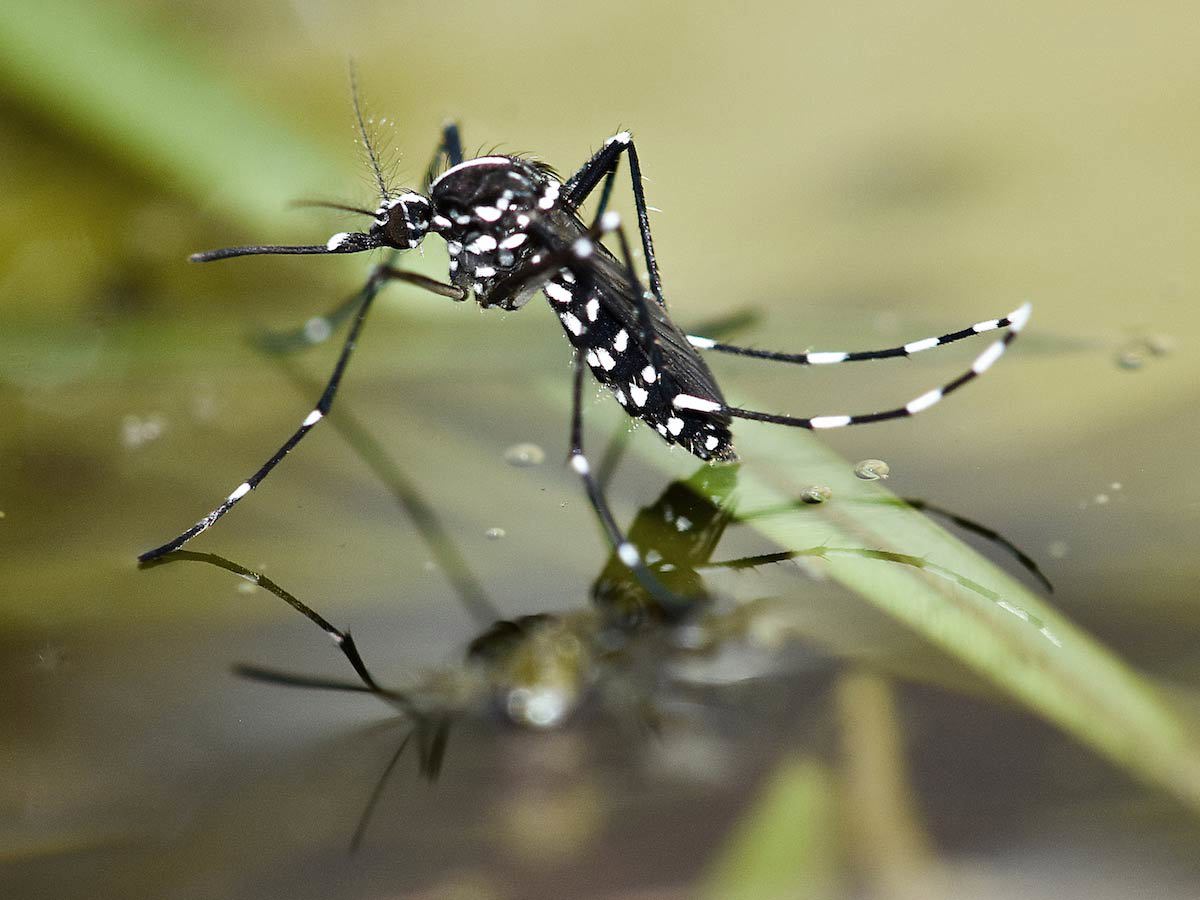Asian Tiger Mosquitoes Aedes albopictus
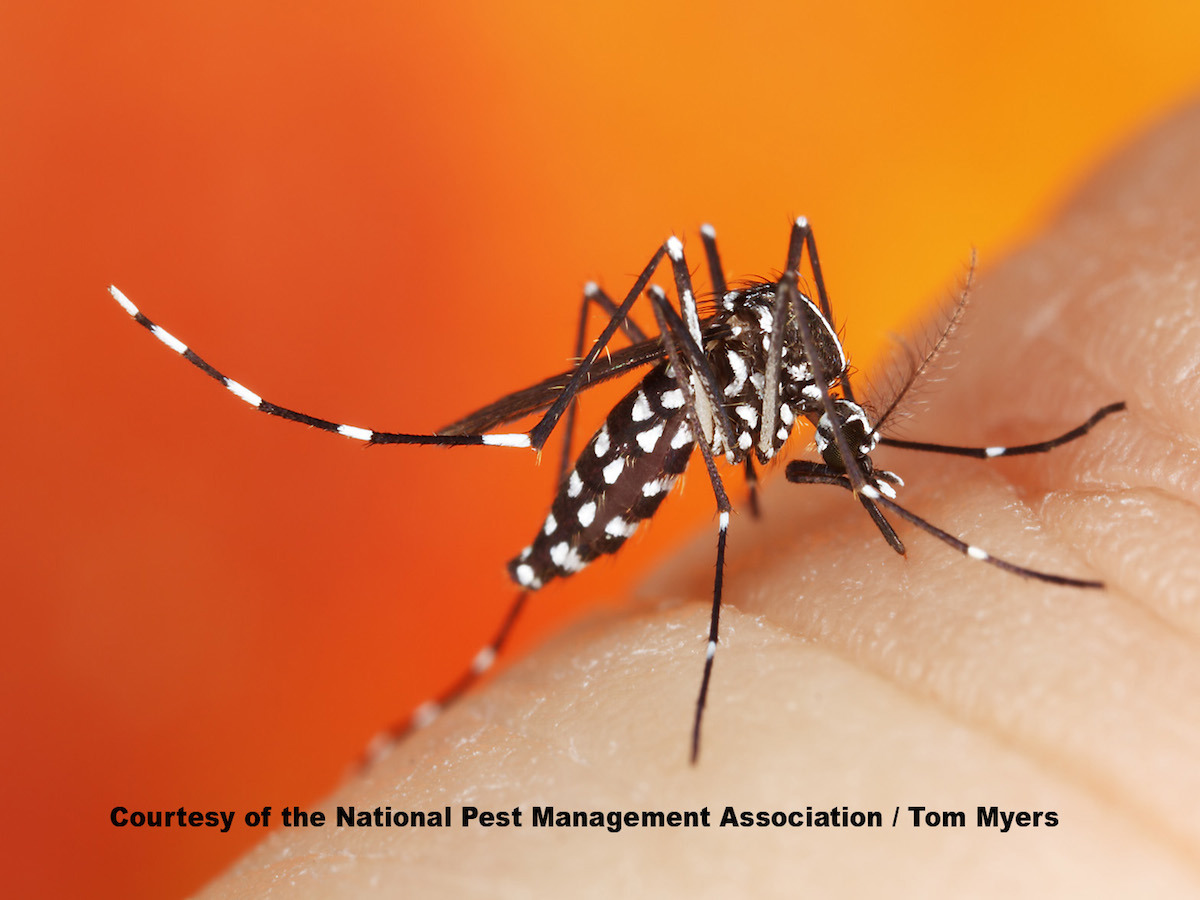
Identification
Color: White and black striped legs and body
Size: About 1/8” (2-10 mm)
Legs: 6
Antennae: Yes
Shape: Long, segmented body with a pair of wings
Region: All, but primarily the southern regions
What is an Asian Tiger Mosquito?
Asian tiger mosquitoes, also known as forest mosquitoes, are an exotic species that get their "tiger" name from the single white stripe down the center of their head and back. Originally from Southeast Asia, this daytime-biting insect can transmit harmful diseases like Eastern Equine Encephalitis (EEE), Zika virus, West Nile virus, Chikungunya and dengue fever. Read on to learn more Asian tiger mosquito facts and prevention.
What do Asian Tiger Mosquitoes look like?
Asian tiger mosquitoes are black with silvery white markings. The best way to identify this species is by the single median silver-white stripe from its head down the center of its back, as well as its striped black and white legs. As with all mosquito species, the antennae of the males in comparison to female is noticeably bushier and contains auditory receptors to detect the characteristic buzz of the female.
Female Asian tiger mosquitoes typically bite during the daytime. Asian tiger mosquito bites are not necessarily painful, but they can leave an itchy, red bump on the skin. Male Asian tiger mosquitoes do not bite and primarily feed on plant nectar.
In warm regions, Asian tiger mosquitoes are active year-round. However, they are known to overwinter in temperate climates. The females lay their eggs inside items that can hold stagnant water, such as tires, flowerpots, birdbaths and clogged drains.
Asian tiger mosquitoes are unique in that they typically feed during the daylight hours, unlike many other mosquito species that feed only at dusk and dawn. In warm regions, Asian tiger mosquitoes are active year-round. However, they are known to overwinter in temperate climates. Like other mosquito species, only females require a blood meal to produce eggs. The females lay their eggs inside items that can hold at least a half inch of stagnant water, such as tires, flowerpots, birdbaths and clogged drains. That means something as small as a bottle cap can hold enough water for larvae (the immature form of insects) to develop! Breeding sites are likely to be close to where the adult mosquito can be found.
Asian tiger mosquitoes can transmit numerous diseases including Eastern Equine Encephalitis (EEE), West Nile virus, and dengue fever. This biting insect is also the primary vector for Chikungunya, a virus similar to dengue fever. The disease originated in southeast Africa and was first described in Tanzania in 1952. It has since spread throughout the Americas, the Caribbean islands, and most recently in the United States.
Asian tiger mosquitoes are in fact also capable of transmitting Zika virus, a rare mosquito-borne disease that has made its way to the United States. Zika virus was first identified in 1947 in Africa as an infection of rhesus monkeys in the Zika forest of Uganda. Read more: Zika Virus – What You Need to Know.
Signs of mosquito activity include the buzzing of the females and presence of their bites on the skin, which people have various reactions to, ranging from mild irritation to intense inflammation and swelling. Another telltale sign of a mosquito problem would be the presence of immature mosquitoes in standing water.
The most effective way to prevent contact with Asian tiger mosquitoes is to eliminate areas of standing water around the home, such as baby pools, flowerpots and birdbaths. Homeowners should also screen all windows and doors and keep gutters free flowing. Those who spend time outdoors should consider wearing long pants and sleeves, and use an insect repellent containing an EPA-registered ingredient like DEET, picaridin or oil of lemon-eucalyptus. Watch: How to Apply Insect Repellent.
If an Asian tiger mosquito infestation is suspected, a licensed pest control professional should be called to assess the problem and recommend a treatment method.
If you suspect an Asian tiger mosquito infestation in your home, the best course of action is to contact a licensed pest control professional. They will conduct a thorough inspection to identify the full extent of the problem. Once the situation is properly identified, the appropriate control measures can be taken.
You can find a professional near you with the helpful zip code search below.

